Late 2018 conference

Inform • Improve • Impact
Online Sept - Nov, 2018
Our 13th online breastfeeding conference
Photo credit: Bill Ivy/Nursing Moms Project. Used with permission.
Inform • Improve • Impact, iLactation’s 13th online breastfeeding conference brought together international speakers from across Europe, North America, Australia and the UK to present on a wide range of clinical and research topics. Topics included a variety of case studies from around the world, counselling skills, safeguarding infant feeding in emergencies and a range of other exciting topics.

How does body image affect breastfeeding intention and duration?
Amy Brown, BSc, MSc, PhD - Read moreHow does body image affect breastfeeding intention and duration?
Amy Brown, BSc, MSc, PhD
Dr Amy Brown is a Professor in the Department of Public Health, Policy and Social Sciences at Swansea University in the UK where she leads the MSc in Child Public health. With a background in psychology, she first became interested in the many barriers women face when breastfeeding after having her first baby. Three babies and a PhD later she has spent the last twelve years exploring psychological, cultural and societal barriers to breastfeeding, with an emphasis on understanding how we can better support women to breastfeed and subsequently raise breastfeeding rates. Her primary focus is how we can shift our perception of breastfeeding as an individual mothering issue, to a wider public health problem, with consideration how we can make societal changes to protect and encourage breastfeeding.
Dr Brown has published over 60 papers exploring the barriers women face in feeding their baby during the first year.In 2016 she published her first book ‘Breastfeeding Uncovered: Who really decides how we feed our babies’, followed by her second ‘Why Starting Solids Matters’ in 2017. She is a regular Huffington Post blogger, aiming to change the way we think about breastfeeding, mothering and caring for our babies.
How does body image affect breastfeeding intention and duration?
We know that influences upon breastfeeding are complex. One important consideration of whether a woman will plan to, or continue breastfeeding is how she feels about her body. Although a high BMI can have a physiological impact upon ability to breastfeed, it is instead the numerous psychological and social pressures that can affect body image and subsequently damage breastfeeding. For example, women are bombarded by messages in the media about how they should look and act, not just in regard to breastfeeding but more generally as a woman. Should she be breastfeeding in public? Has she lost the baby weight yet? Will breastfeeding make her breasts sag? Aren’t her breasts for her partner? Furthermore, these messages do not solely focus on how she looks. Countless messages cause new mothers to worry about whether their breasts will ‘work’ properly, or make them simply feel like a vessel who holds the milk that their baby needs.
This talk will unpick how all these different influences can affect maternal knowledge, confidence and intention to breastfeed and consider the importance of supporting women to feel confidence in their body’s ability – and their right – to nourish their baby. It will challenge cultural notions about breastfeeding and the female body, aiming to encourage women and society to view a woman’s body, in this particular instance her breasts, not as something to hide or be anxious about but instead symbolic of female strength, power and nurturance.
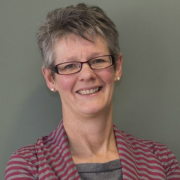
Diabetes and Antenatal Milk Expressing (DAME): a randomised controlled trial
Anita Moorhead, RN, RM, Neonatal Cert Grad Cert, HServ Man, IBCLC - Read moreDiabetes and Antenatal Milk Expressing (DAME): a randomised controlled trial
Anita Moorhead, RN, RM, Neonatal Cert Grad Cert, HServ Man, IBCLC
Anita Moorhead is a Clinical Midwife Consultant (Lactation), Royal Women’s Hospital, Melbourne and Trial Coordinator for the DAME (Diabetes and Antenatal Milk Expressing Trial) and PhD candidate at the Judith Lumley Centre, La Trobe University.
Anita has worked in the fields of midwifery, neonatal paediatrics, early parenting, lactation services and nursing management. She has collaborated on a number of breastfeeding papers, hospital and state based clinical guidelines and breastfeeding reports. Anita has been a BFHI assessor and educator and an IBCLC since 1994.
Diabetes and Antenatal Milk Expressing (DAME): a randomised controlled trial
This presentation will discuss the background to the Diabetes and Antenatal Milk Expressing (DAME) trial conducted in Australia and the research methodology used. The primary and secondary outcomes will be explained as well as the limitations of the study. The applicability of the findings to clinical practice and further research will be also be discussed.

Incomplete, uncoordinated and in the wrong place: Understanding feeding development to support outcomes for the preterm baby
Annie Aloysius, BSc(Hons), MRCSLT, HPC, IBCLC - Read moreIncomplete, uncoordinated and in the wrong place: Understanding feeding development to support outcomes for the preterm baby
Annie Aloysius, BSc(Hons), MRCSLT, HPC, IBCLC
Annie Aloysius is a Speech and Language Therapist and lactation consultant (IBCLC) working for over 20 years in the field of paediatric feeding and swallowing difficulties, specialising in Neonatology. She currently works on the neonatal units at St Marys and Queen Charlottes and Chelsea Hospitals alongside the multidisciplinary team to support families and their babies. She has worked with a number of charities and organisations on projects and initiatives to support feeding and neonatal care including the Royal College of SLT, Bliss the preterm baby charity, Best Beginnings – Small Wonders www.bestbeginnings.org.uk, Unicef UK Baby Friendly Initiative and Birthlink UK in Rwanda and the Democratic Republic of Congo www.birthlinkuk.org. Publications and research include chapters and papers on feeding. Currently she is involved in implementing the Integrated Family Delivered Care Project at Imperial College Healthcare NHS Trust.
Incomplete, uncoordinated and in the wrong place: Understanding feeding development to support outcomes for the preterm baby
Feeding skills are developed early in uterine life as the fetus sucks on its fingers and swallows amniotic fluid. This rehearsal in a supportive environment, results in an infant at term born, ready to root, attach and suck at the breast and co-ordinate swallowing and breathing for effective feeding. This development can be interrupted by preterm delivery and the baby finds himself in an environment unconducive to further practice and development. It may be hard to get into a flex position and get his hands to his mouth, he no longer is swallowing regularly and misses out on the smell and taste of his mothers amniotic fluid.
By considering the environment of the neonatal nursery both for the mother and baby, promoting opportunities for the practice of early feeding skills and minimising the potential impact of negative or aversive oral and facial interventions it is possible to support smooth transition from tube to breastfeeding and reduce sensory based feeding difficulties developing. Proactive interventions include; positioning, mouth cares with breast milk, positive oral touch and non nutritive sucking.

Safeguarding infant feeding in emergencies: operational guidance & practical experiences
Colleen Emary, MSc - Read moreSafeguarding infant feeding in emergencies: operational guidance & practical experiences
Colleen Emary, MSc
Colleen Emary is a public health nutritionist, with 17 years of experience working on global nutrition issues. She has worked in Ghana, Democratic Republic of Congo and Chad, providing leadership for program design, implementation and evaluation for a variety of nutrition approaches in both development and humanitarian emergency contexts, including short-term and remote technical support for several countries in Africa, Asia and Latin America. Her areas of interest include infant and young child feeding, management of acute malnutrition, and multi-sectoral approaches to improving child health and nutrition outcomes. Colleen currently works as a nutrition and health technical advisor with World Vision International and in this role, has developed organizational policy and programming guidance on infant feeding in emergencies. In her local community, she volunteers as a peer-support breastfeeding counselor with the Breastfeeding Buddies Program in the Region of Waterloo. She a mother of 3 daughters, and lives in Cambridge, Ontario Canada.
Safeguarding infant feeding in emergencies: operational guidance & practical experiences
This presentation will overview infant feeding issues in major emergencies, and will highlight key recommendations of the recently updated Infant Feeding in Emergencies Operational Guidance. This guidance provides concise, practical advice on how to ensure appropriate infant and young child feeding in emergencies, and is relevant to policy-makers and programmers working in emergency preparedness and response, including governments, volunteer groups, private sector and non-governmental organizations. Program examples of supporting IYCF in major global emergencies will be shared.
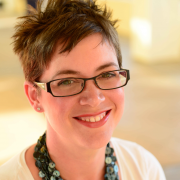
Breastfeeding, sleep and the myths in between
Lyndsey Hookway, BSc, RNC, HV, IBCLC - Read moreBreastfeeding, sleep and the myths in between
Lyndsey Hookway, BSc, RNC, HV, IBCLC
Lyndsey Hookway is an experienced Paediatric Nurse, Health Visitor, International Board Certified Lactation Consultant, Holistic Sleep Coach and Birth Trauma Recovery Practitioner, with almost 20 years experience working with infants, children and families in hospitals, clinics, and the community.
Lyndsey runs a busy practice offering one-to-one specialist breastfeeding, bottle feeding, sleep, eating, behaviour and parenting support to families in the UK and Internationally. Lyndsey is the author of Holistic Sleep Coaching and has published a number of articles in academic journals, as well as parenting magazines regarding breastfeeding, caring for premature babies and sleep issues in children. She regularly teaches health and childcare professionals, lectures as an independent speaker, and hopes to begin her PhD later this year.
Breastfeeding, sleep and the myths in between
This presentation will argue that professionals supporting parents with responsive breastfeeding are ideally placed to also inform and guide them towards evidence-based and gentle sleep strategies. We will cover the context of normal infant sleep, as well as what unanswered questions still exist, the myths about breastfeeding, infant behaviour and formula that persuade parents to think that their infant’s sleep is problematic, the common strategies suggested to attempt to ‘fix’ the problem of night waking, the evidence and rationale for not using cry-it-out and some gentle and safe strategies to recommend, and why they work.

Busy MUMS: time management and other tips from moms who nurse 5 to 15 babies!
Sara-Chana Silverstein, IBCLC, AHG (RH) - Read moreBusy MUMS: time management and other tips from moms who nurse 5 to 15 babies!
Sara-Chana Silverstein, IBCLC, AHG (RH)
Sara-Chana Silverstein is an International Board-Certified Lactation Consultant, classical homeopath, master herbalist, businesswoman, wife and mother of seven children. She is a highly sought-after public speaker, presenting an array of topics in an intelligent, compelling, and exciting way. Her specialty is using herbs in breastfeeding.
She has worked with over 12 thousand breastfeeding mothers over the past 25 years specializing in sore nipples, chronic yeast, failure to thrive, low milk supply, over productions and integrating alternative medicine with conventional medicine. Her specialty is the use of Herbal Medicine while breastfeeding. She travels the country doing TV segments for ABC, NBC, CBS, and Fox news shows. She also guests lectures at Medical schools teaching pediatric residents about breastfeeding. She is author of the upcoming book, MOODTOPIA: tame your moods, de-stress, using herbs aromatherapy and more.
She is a consultant to many obstetricians, midwives and pediatricians in the New York metropolitan and Los Angeles area, and she guides mothers in how to ask the proper questions of their doctors to ensure that they and their children receive the most appropriate and comprehensive healthcare.
Busy MUMS: time management and other tips from moms who nurse 5 to 15 babies!
This presentation will discuss what Sara-Chana has learned from working with large families. The clientele she assists with have between 5-15 children and breastfeed on the low end till 24 months on the high end for 4 years. It will discuss how and why they are so triumphant. We will learn about: time management skills, the emotional outlook needed, how to help the baby who has challenges and the role the Lactation Consultant plays in their success.
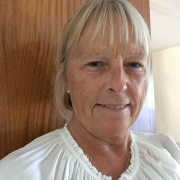
Breastfeeding in Denmark, the Danish Health Model, care and support
Tinne Thomsen, RN, IBCLC - Read moreBreastfeeding in Denmark, the Danish Health Model, care and support
Tinne Thomsen, RN, IBCLC
Tinne Thomsen became a Registered Nurse in 1982 and worked in Singapore, Hong Kong and Sierra Leone Africa for 8 years all together, in maternity and breastfeeding. She has been a Health Visitor in a Kommune/Munipalicity in Denmark since 1996. Working with newborn families, breastfeeding matters as a part of the function being a health visitor.
Tinne became IBCLC in 2011 and recertified in 2016, working in the same kommune being a consultant for the colleagues bringing them up-to-date with breastfeeding news. Join joined the Danish Association of Lactation Consultants (DACLC) in 2012 and has served as vice-chairman in DACLC since 2015. She talked about Breastfeeding in Denmark for ELACTA in Denmark 2014. And has given presentations regarding Breastfeeding in Denmark, care and support system on various occasions.
Breastfeeding in Denmark, the Danish Health Model, care and support
Danish people are the happiest people in the world and the people that breastfeeding the most. How is that? What is successful breastfeeding? What Challenges do we have for successful breastfeeding in Denmark?
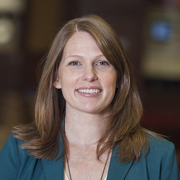
Lactation law
Meghan Boone, JD, LLM - Read moreLactation law
Meghan Boone, JD, LLM
Professor Meghan Boone is an Assistant Professor of Law at the University of Alabama School of Law. Prior to joining the faculty at the University of Alabama, she was a Visiting Assistant Professor at Wake Forest University School of Law and a Clinical Teaching Fellow at Georgetown University Law Center, where she also earned her LLM in Advocacy. Her research interests include state regulation of the physical body, emerging trends in civil rights litigation, and issues of inclusion in the legal profession. Professor Boone teaches Family Law and a seminar on Reproductive Rights.
Lactation law
Lactation law discusses the current state and federal laws in the USA that protect, support, or encourage breastfeeding and critiques how the statutory language utilized requires women and families to conform to narrow and outdated notions of appropriate female behavior. It concludes with suggestions for how these laws can be drafted to protect more lactating individuals without reliance on gendered stereotypes.
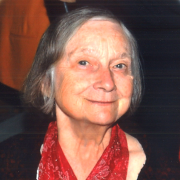
Improving breastfeeding counselling skills in the 21st century
Virginia Thorley, OAM, PhD, IBCLC, FILCA, GradDip Counselling - Read moreImproving breastfeeding counselling skills in the 21st century
Virginia Thorley, OAM, PhD, IBCLC, FILCA, GradDip Counselling
Dr Virginia Thorley is a pioneer of the Australian breastfeeding movement, supporting mothers and babies and mentoring colleagues. She is the author of four books and a co-editor of a fifth book. In 1985 she was in the initial cohort to certify IBCLC and is currently certified to 2021. In 2008 she was inducted as one of the first Fellows of the International Lactation Consultant Association (FILCA). She is currently an Honorary Research Fellow in the School of Historical and Philosophical Inquiry, University pf Queensland.
As well as supporting mothers the traditional way, in person, Dr Thorley’s experience in breastfeeding counselling traverses a broad spectrum, from letter counselling to email counselling, from telephone to different real-time video platforms. She holds a graduate degree in counselling and has spoken in Australia and South Africa on breastfeeding counselling skills and presented a poster on telephone counselling at the VELB/ILCA Conference in Vienna. She is cogniscent of the access and equity needs of women living remotely or otherwise isolated from the breastfeeding support they need, and the importance of confidentiality and ethics in using the new online technologies (as in more traditional modes).
Improving breastfeeding counselling skills in the 21st century
Dr Virginia Thorley will describe the various modes used in counselling today – in-person, telephone, email (replacing letters), video calls, and text messages. Each mode has its strengths and weaknesses and a combination of modes can be used, tailoring the choice to the mother’s needs, her location and access, her family commitments, and other relevant factors.
Certain basic elements are important in any counselling, whatever the mode and Dr Thorley will overview basic counselling skills. She will also discuss confidentiality issues in relation to different delivery modes and the need for appropriate record-keeping.

IYCF-E in refugee camps: taking care of everyone
Juanita Jauer Steichen, IBCLC andJanette Timmermans, IBCLC - Read more
IYCF-E in refugee camps: taking care of everyone
Juanita Jauer Steichen, IBCLC
A Canadian living in France for the past 25 years, Juanita Jauer Steichen discovered breastfeeding with her three children and LLL. Still an active leader today, Juanita became an IBCLC in 2003. She is a passionate advocate of the International Code on the Marketing of Breast-milk Substitutes and has given Code presentations in France, Ireland, the Netherlands, Germany, Croatia, Denmark and Italy. She represented LLLI at the Third Meeting of the Global Network on the International Code of Marketing of Breast-Milk Substitutes (NetCode) at WHO, Geneva, 25-27 April 2018.
Member of the Coordination française pour l’allaitement maternel (CoFam) since 2007, she is head of the Task Force on the Code and ethical questions. As a member of IBFAN, she participated in IBFAN conferences in Montecatini (2007) and in Geneva (2008) and helped prepare an IBFAN country report (France) on the importance of breastfeeding and the need to apply the Code for the Committee on the Convention on the Rights of the Child in Geneva (2009 and 2016). She is an active member of IBFAN’s Global Working Group on Contaminants in Breastmilk.
Janette Timmermans, IBCLC
Janette Timmermans is an Australian lactation consultant IBCLC living in the Netherlands. A volunteer breastfeeding counsellor with the Australian Breastfeeding Association for nearly two decades and a hospital based lactation consultant for 8 years in Melbourne as well as in private practice, Janette has a wide range of experience to draw upon. She has presented to health professionals and breastfeeding counsellors in Australia and in Europe on a variety of topics including counselling and communication skills. She continues to support mothers in the community by offering one-on-one consults, breastfeeding education sessions for pregnant and new mothers and a monthly Mama Café in her new Dutch hometown. Currently she is a board member with the Dutch Lactation Consultant Association NVL
IYCF-E in refugee camps: taking care of everyone
Since 2015, Greece has become the destination for thousands of refugee families fleeing war and famine. Many IBCLCs and breastfeeding counsellors have joined humanitarian actions to help implement IYCF-E in the field. However, skills and expertise in lactation do not prepare for the often surprisingly difficult emotional burden taken on by caregivers. This presentation provides an overview of the context of IYCF-E in refugee camps and examines the emotional impact on caregivers, based on experiences of Janette Timmermans and Juanita Jauer Steichen in Greece in May 2016, and explores practical resources for psychological support.
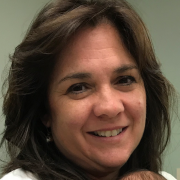
Worldly case studies: why and how to stay connected
Annette Leary, BS, IBCLC - Read moreWorldly case studies: why and how to stay connected
Annette Leary, BS, IBCLC
Annette Leary has been working with new families for over 30 years as a registered nurse and 23 years as an IBCLC lactation consultant. She trained with the Upledger Institue in craniosacral therapy through pediatrics over the past 4 years. Her current employment is for a very large women and infants hospital that has over 15,000 deliveries a year. She works in the maternal education department where she facilitates outpatient consults, staff education and postpartum support groups.
Annette is owner of Orlando Lactation, where she provides in-home consults for both lactation and CST. Her greatest accomplishment is raising 4 independent children to adulthood, now aged 37-20 years old. Her greatest joy is being called Nana by her 2 grandchildren.
Worldly case studies: why and how to stay connected
This presentation is of actual case studies involving diverse patients in a large regional perinatal intensive care center for women and infants who come from various countries throughout the world to deliver their babies at our hospital. We will discuss the modes and barriers to communicating from a distance as well as the resources that may be available in their part of the country when they return home. The families also return home with skills that they can use to identify how their baby is succeeding with breastfeeding.
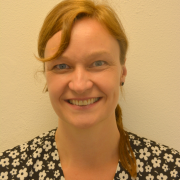
Cross-border solutions for a variety of breastfeeding cases
Serena Debonnet, RM, IBCLC - Read moreCross-border solutions for a variety of breastfeeding cases
Serena Debonnet, RM, IBCLC
Serena Debonnet combines her role as the National BFHI Coordinator for Belgium at Ministry of Health with her midwifery practice in Kliniek Sint Jan Brussels, where she prepares pregnant women for a ‘Mother Friendly’ way to give birth and strongly promotes skin-to-skin contact and breastfeeding. She also trains healthcare professionals, future lactation consultants in Gent & Genk Belgium, and student midwives on human lactation and breastfeeding. She is a past board member for ELACTA (European Lactation Consultants Alliance) and a current Board member for the International Confederation of Midwives.
Cross-border solutions for a variety of breastfeeding cases
Breastfeeding is an unequalled way of providing ideal food for the healthy growth and development of infants; it is also an integral part of the reproductive process with important implications for the health of mothers. Review of evidence has shown that, on a population basis, exclusive breastfeeding for 6 months is the optimal way of feeding infants. While breastfeeding is a natural act, it is also a learned behavior. An extensive body of research has demonstrated that mothers and other caregivers require active support for establishing and sustaining appropriate breastfeeding practices. Lack of knowledge and lack of clinical experience seem to be important barriers to providing patients with information about breastfeeding. Mothers unfortunately do not always achieve their own breastfeeding goals. During this presentation Serena will talk about common breastfeeding problems and their possible treatments. Solutions respect and support the breastfeeding dyad.

Developing occupational and speech therapists as lactation professionals
Farah Antoine-Mayberry, CLC, NTMTC, OTR/L - Read moreDeveloping occupational and speech therapists as lactation professionals
Farah Antoine-Mayberry, CLC, NTMTC, OTR/L
Farah Antoine-Mayberry has been an occupational therapist for over 15 years, earning her degree from Howard University in Washington, DC. She is passionate about infant development and about empowering parents during the prenatal and postnatal stages of development. She has worked with infants, children, and adults in various settings including the NICU, PICU, outpatient clinics, home health, and general hospitals. Her experience as a provider in various settings gives her a unique set of lenses when working with families who come with their unique backgrounds, experiences, circumstances, and expectations.
In 2012, she co-founded the Oklahoma Association of Neonatal and Pediatric Therapists (OANAPT) a group that has provided opportunities for the professional development of occupational, speech, and physical therapists working in the NICU and various pediatric settings.
She is also a certified lactation counselor and uses this specialty to assist infants and mothers with the support they need to successfully participate in their feeding goals. She works as a birth doula with an ultimate goal of increasing the amount and quality of birth services provided to communities of color in an effort to help reduce infant and maternal mortalities existing among select populations.
Farah continues to work on initiatives that help provide lactation assistance to those who need it. As a certified lactation counselor, she establishes relationships, provides assessments and provides education with the hopes of helping mothers feel empowered and confident with their feeding choices. As a birth doula, her goal is to assist mothers and their birth partners with planning for the type of birth that they desire by empowering them with knowledge and providing them with the support that they deserve. Farah and her husband have been blessed with 5 incredible children (including a set of twins). Besides working with mothers and babies, she enjoys spending time with family, dabbling in photography, and traveling.
Developing occupational and speech therapists as lactation professionals
Learn how the Baby-Friendly Hospital Initiative can be supported and promoted in the NICU by neonatal occupational and speech therapists. Learn what they do and how specialized training in lactation can ultimately impact populations that may benefit from breastfeeding support the most.
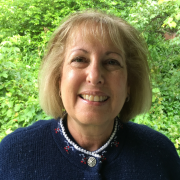
How do you know if your lactation practice is evidence based?
Sherri Mendelson, PhD, RNC, CNS, IBCLC - Read moreHow do you know if your lactation practice is evidence based?
Sherri Mendelson, PhD, RNC, CNS, IBCLC
Dr. Sherri Mendelson is Director of Nursing Research, Magnet Program and Professional Practice at Providence Holy Cross Medical Center in Mission Hills, CA. She has multiple presentations and publications. She is a reviewer for JOGNN and is the research lead for the California Breastfeeing Coalition annual conference.
How do you know if your lactation practice is evidence based?
This talk will discuss current evidence for lactation practice. Aspects of the research studies will be reviewed to help the participants understand key points that demonstrate strong evidence for adoption of lactation practices.

Lactation and early childhood caries, myth or reality?
Dr Carolina Jiménez-Yuste (Dentist) - Read moreLactation and early childhood caries, myth or reality?
Dr Carolina Jiménez-Yuste
Dr Carolina Jiménez-Yuste has a degree in Dentistry from the European University of Madrid 2003, and a Master in Dental Aesthetics and Adhesion by the University of Santiago de Compostela 2004. Motherhood introduced her to the world of breastfeeding and mother-to-mother support and she became a leader with La Leche League in 2012. She has participated as a speaker in different conferences and has collaborated in several publications on various aspects of oral health and its relationship with breastfeeding. She is the mother of three breastfed children.
Lactation and early childhood caries: myth and reality
Breastfeeding has been placed in the spotlight as a possible risk factor for the appearance of caries in early childhood. Health professionals and especially dentists must know how to recognize and manage risk factors and protective factors against tooth decay, and especially to educate on prevention. They also have as sanitarians the duty to promote and protect breastfeeding. This presentation analyzes the existing research studies on this topic that, on numerous occasions, leads to a weaning that has not been shown to be effective in the management of the disease.
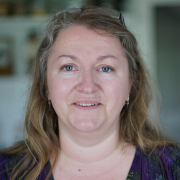
Lactose intolerance, colic, reflux and cow's milk protein allergy
Shel Banks, IBCLC - Read moreLactose intolerance, colic, reflux and cow's milk protein allergy
Shel Banks, IBCLC
Shel Banks works part time in the NHS as well as having a private IBCLC practice seeing new families in person across the northwest of England and North Wales, and online all over the world. She also have a small business offering training for health professionals and running classes for families and health professionals in her local area on various infant feeding and baby care topics. She has been working supporting new families since 2001. Shel is a member of the committees of many national bodies working in infant feeding, including the Breastfeeding Festival, UK Association for Milk Banking and Lactation Consultants of Great Britain as well as the Local Infant Feeding Information Board. She has contributed to the guideline development committees for three NICE guidelines and assisted with the development of three Cochrane systematic reviews, as well as being an active volunteer. She is relatively new to webinars but have been presenting on infant feeding topics in real life for over 15 years and has enjoyed working with iLactation. Shel lives in Lancashire, England and has three children.
Lactose intolerance, colic, reflux and cow’s milk protein allergy
This presentation will overview the definitions of gastro oesophageal reflux and infantile colic, and the symptoms of cow’s milk protein allergy and lactose intolerance, to provide attendees of this session with a good understanding of the right questions to ask to differentiate between the issues, and the knowledge of how to prevent, treat and manage the milk fed infant who is exhibiting symptoms.
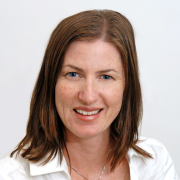
Racial/ethnic disparities in breastfeeding among preterm infants: NeoQIC Human Milk QI Collaborative
Margaret Parker, MD, MPH - Read moreRacial/ethnic disparities in breastfeeding among preterm infants: NeoQIC Human Milk QI Collaborative
Margaret Parker, MD, MPH
Dr Margaret Parker is a neonatologist and Assistant Professor of Pediatrics at Boston Medical Center (BMC), Boston University School of Medicine. She is a graduate of the improvement advisor program at the Institute of Healthcare Improvement and currently leads the Massachusetts Human Milk QI Collaborative among level 3 NICUs caring for preterm infants. She is currently the education chairperson of the American Academy of Pediatrics Section on Breastfeeding Executive Committee. Dr Parker has authored more than 20 publications and holds a federal and foundation grant in the area of preterm feeding practices and she is especially interested in reducing disparities in breastfeeding for preterm infants using quality improvement processes. Dr Parker serves on the research board of the Mother’s Milk Bank Northeast and has donated over 2000 ounces of breastmilk. She has 3 daughters and lives in Brookline, Massachusetts.
Racial/ethnic disparities in breastfeeding among preterm infants: NeoQIC Human Milk QI Collaborative
This presentation will review the importance of mother’s milk for VLBW infants as a factor to offset racial/ethnic health disparities in preterm birth outcomes in the US and describe a quality improvement approach to addressing this problem on a state-wide level. This talk will review the nuts and bolts of quality improvement methodology and successful and not successful approaches used to improve mother’s milk use for hospitalized preterm infants. Tools will be provided that can be directly used to inform hospital-based strategies to improve provision of mother’s milk. This talk is relevant for clinicians and others engaged in quality improvement work at the local and regional level.
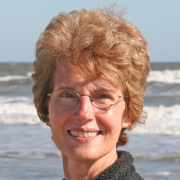
Mammary dysbiosis: probiotics, vibration, and turmeric?
Marsha Walker, RN, IBCLC - Read moreMammary dysbiosis: probiotics, vibration, and turmeric?
Marsha Walker, RN, IBCLC
Marsha Walker is a registered nurse and international board certified lactation consultant. She has been assisting breastfeeding families in hospital, clinic, and home settings since 1976. Marsha is the executive director of the National Alliance for Breastfeeding Advocacy. NABA is the US IBFAN organization that monitors the International Code of Marketing of Breastmilk Substitutes. As such, she advocates for breastfeeding at the state and federal levels. She served as a vice president of the International Lactation Consultant Association (ILCA) from 1990-1994 and in 1999 as president of ILCA. She is a previous board member of the US Lactation Consultant Association, Baby Friendly USA, and the Massachusetts Breastfeeding Coalition. She serves as USLCA’s representative to the USDA’s Breastfeeding Promotion Consortium, NABA REAL’s representative to the US Breastfeeding Committee, Associate Editor of Clinical Lactation, and a board member of the Massachusetts Lactation Consultant Association. Marsha is an international speaker, and an author of numerous publications including ones on the hazards of infant formula use, Code issues in the US, and Breastfeeding Management for the Clinician: Using the Evidence, 4th edition.
Mammary dysbiosis: probiotics, vibration, and turmeric?
Mastitis can be an unwelcome and debilitating visitor to breastfeeding mothers. The mammary gland has its own microbiome that can be affected by reduced polymorphonuclear neutrophil recruitment during the first 3 months postpartum as well as the receipt of antibiotics during the last trimester of pregnancy. This can leave the breast vulnerable to pathologic bacterial overgrowth. Mammary dysbiosis is a process whereby the population of potential pathogens increases at the expense of the normal mammary microbiota. Multi-resistance to antibiotics plus tricky evasion techniques engaged in by bacterial agents can result in microbes that are elusive to antibiotic therapy. Therefore new strategies are needed for the treatment of this threat to continued breastfeeding. This presentation will explore new possibilities in treatments for mastitis the inflammation and mastitis the infection. Agents such as probiotics, vibratory techniques to disrupt blocked milk ducts, and even turmeric (turmeric contains the chemical curcumin which is a strong anti-inflammatory) will be discussed.

Breastfeeding, contraception, and ethics, oh my! Advocacy and informed decision-making in the post-partum periodMood, mother & infant: oxytocin, lactation and postpartum depression
Alison Stuebe, MD, MSc, FACOG - Read moreBreastfeeding, contraception, and ethics, oh my! Advocacy and informed decision-making in the post-partum periodMood, mother & infant: oxytocin, lactation and postpartum depression
Alison Stuebe, MD, MSc, FACOG
Dr Alison Stuebe completed her Obstetrics and Gynecology residency at Brigham and Women’s Hospital and Massachusetts General Hospital in Boston. She completed fellowship training in Maternal Fetal Medicine at Brigham and Women’s, and she earned a Masters in Epidemiology from the Harvard School of Public Health. She has published more than 120 peer-reviewed articles. She is currently an Associate Professor and Board-Certified Maternal-Fetal Medicine subspecialist at the University of North Carolina School of Medicine and Distinguished Scholar of Infant and Young Child Feeding at the Gillings School of Global Public Health. In the clinical arena, she is Medical Director of Lactation Services at UNC Health Care, and she works with an interdisciplinary team of faculty and staff to enable women to achieve their infant feeding goals. Her current research focuses on developing models for integrated care of families during the 4th Trimester.
She is a member of the Steering Committee for Moms Rising North Carolina, and she is actively engaged in professional organizations. At the Society for Maternal-Fetal Medicine, she is a member of the board of directors and of the SMFM Health Policy and Advocacy Committee. At the American College of Obstetricians and Gynecologists, she is a member of both the Breastfeeding Expert Work Group and the Maternal Mental Health Expert Work Group, and she chaired the Task Force on Reinventing Postpartum Care. She is also chair of the Communications Committee and president-elect of the Academy of Breastfeeding Medicine.
Breastfeeding, contraception, and ethics, oh my! Advocacy and informed decision-making in the post-partum period
When a woman wants to breastfeed and wants to space her pregnancies, how can we help her make an informed decision about the risks and benefits of hormonal contraception?
Mood, mother & infant: oxytocin, lactation and postpartum depression
Does breastfeeding prevent depression, or does depression prevent breastfeeding? In this presentation we will dive into the biology of perinatal depression, learn new strategies for screening and treatment, and apply your newfound knowledge to support the mothers and babies in your practice.


